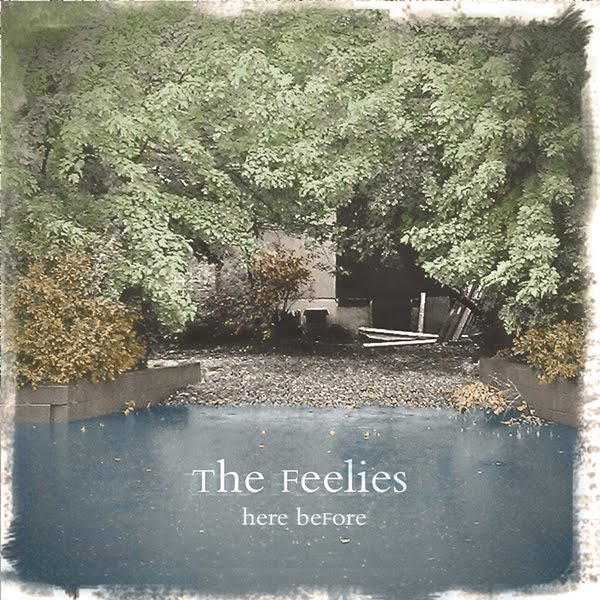
Seminal avant-pop savants The Feelies play Union Transfer tomorrow night in support of Here Before, their first album in 18 years. We have two pairs of tickets to give away to lucky Phawker readers. To qualify, just sign up for our mailing list [SEE RIGHT, below the masthead] then email us at FEED@PHAWKER.COM with the correct answer to the following Feelies trivia question: What is the name of the 1986 Jonathan Demme film the Feelies appear in? While we are all waiting to see how this turns out, enjoy this interview with Feelies mainman Glenn Mercer that originally ran on Phawker back in April of 2010.
Q&A With Glenn Mercer Of The Feelies
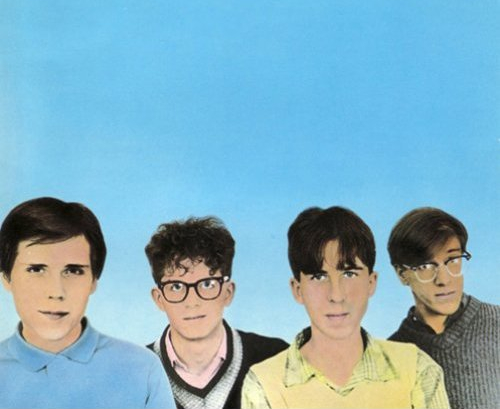
 BY JONATHAN VALANIA The Feelies are one of those inscrutable but beloved band’s bands whose influence far exceeds their royalty statements and, as a consequence, the period on the last sentence in their bio keeps turning into a comma. Borne of the suburban garages of North Haledon, New Jersey, they released Crazy Rhythms in 1980 to massive acclaim and minimal sales and then promptly split off into a myriad of minor side projects, only to resurface again in 1986 with the altogether wonderful The Good Earth, produced by Peter Buck, guitarist for REM, whose early sound is deeply indebted to the inviting ambiguities and pretty persuasions of the Feelies’ aesthetic. Two major label releases would follow — 1988’s Only Life and 1991’s Time For A Witness — and that was pretty much all she wrote. Although a funny thing happened on the way to the cut-out bin in that The Feelies pretty much forged the template for much of the indie rock that would follow: A dense web of jangling guitars and zooming raga-like drones, percussion-heavy rhythms played at double latte tempos, incantatory lead vocals mixed as understatement of the year. Fast forward to 2008, when the reactivated Feelies once again turned the period at the end of their bio into a comma. Last March at Johnny Brendas the band was living proof that not much has really changed all these years later. They still dress like grad studies professors, with dual frontmen/guitarists Bill Million and Glenn Mercer rocking matching pleated khakis. They still love turning a good classic rock cover sideways (”She Said, She Said” and “Paint It Black), crazy-tempoed rave-ups like “Slipping (Into Something)” have lost none of their amphetamine pep, and the Feelies’ brand of indie-rock raga can still make a sold out club audience wiggle wildly like worms on a hook despite the preponderance of graybeards and thinning pates in the crowd. With a set list that drew liberally from their glorious middle period, the Feelies recreated once-upon-a-time college radio staples such as “The High Road” and “Deep Fascination” with impeccable precision, warmth and clarity, not to mention that sense of mystery at the center of their music that always suggested they knew much more than they let on.
BY JONATHAN VALANIA The Feelies are one of those inscrutable but beloved band’s bands whose influence far exceeds their royalty statements and, as a consequence, the period on the last sentence in their bio keeps turning into a comma. Borne of the suburban garages of North Haledon, New Jersey, they released Crazy Rhythms in 1980 to massive acclaim and minimal sales and then promptly split off into a myriad of minor side projects, only to resurface again in 1986 with the altogether wonderful The Good Earth, produced by Peter Buck, guitarist for REM, whose early sound is deeply indebted to the inviting ambiguities and pretty persuasions of the Feelies’ aesthetic. Two major label releases would follow — 1988’s Only Life and 1991’s Time For A Witness — and that was pretty much all she wrote. Although a funny thing happened on the way to the cut-out bin in that The Feelies pretty much forged the template for much of the indie rock that would follow: A dense web of jangling guitars and zooming raga-like drones, percussion-heavy rhythms played at double latte tempos, incantatory lead vocals mixed as understatement of the year. Fast forward to 2008, when the reactivated Feelies once again turned the period at the end of their bio into a comma. Last March at Johnny Brendas the band was living proof that not much has really changed all these years later. They still dress like grad studies professors, with dual frontmen/guitarists Bill Million and Glenn Mercer rocking matching pleated khakis. They still love turning a good classic rock cover sideways (”She Said, She Said” and “Paint It Black), crazy-tempoed rave-ups like “Slipping (Into Something)” have lost none of their amphetamine pep, and the Feelies’ brand of indie-rock raga can still make a sold out club audience wiggle wildly like worms on a hook despite the preponderance of graybeards and thinning pates in the crowd. With a set list that drew liberally from their glorious middle period, the Feelies recreated once-upon-a-time college radio staples such as “The High Road” and “Deep Fascination” with impeccable precision, warmth and clarity, not to mention that sense of mystery at the center of their music that always suggested they knew much more than they let on.
PHAWKER: Where am I reaching you? Where are you based these days?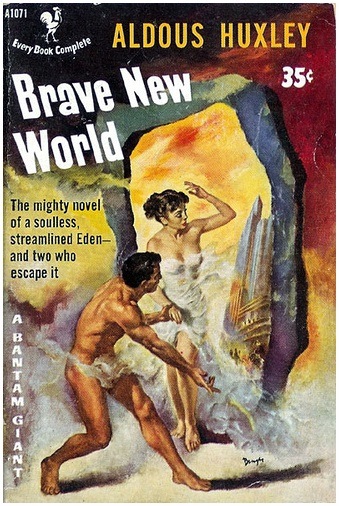
GLENN MERCER: North Haledon, New Jersey.
PHAWKER: Going back to the origin of the band name, it’s based on Aldous Huxley’s Brave New World, correct?
GLENN MERCER: Yes
PHAWKER: Now, for the benefit of those who haven’t read the book, including myself…
GLENN MERCER: I haven’t read it either. Were you going to ask if it made a reference to the book?
PHAWKER: I was going to ask if you had read the book and what impact it had on you.
GLENN MERCER: I think it’s like movies of the future. Kind of a virtual reality type situation.
PHAWKER: So who came up with the band name?
GLENN MERCER: Bill [Million] did.
PHAWKER: So I guess I’d have to ask him that. So you guys are famous for this very distinctive guitar sound that you came up with over the years, and I’m curious how you guys arrived at that.
GLENN MERCER: Well mostly from the kinds of bands we liked and listened to. I guess when you’re first starting out, you don’t have big aspirations. You definitely shy away from the flashy guitar solo kind of thing. You gravitate more toward people like Pete Townsend and more simple rhythmic folks really. Ron Ashton and The Stooges were a big influence. Guys in the Velvet Underground, Alice Cooper; a lot of those guys had two guitars. The play between the guitars was crucial to the sound.
PHAWKER: When did you first encounter the Velvet Underground?
GLENN MERCER: That would be ‘67 I think.
PHAWKER: What were you doing? Did you see them live?
GLENN MERCER: No, but a friend of mine was at their very first show. They played at a high school in New Jersey. For me though, it was just hearing 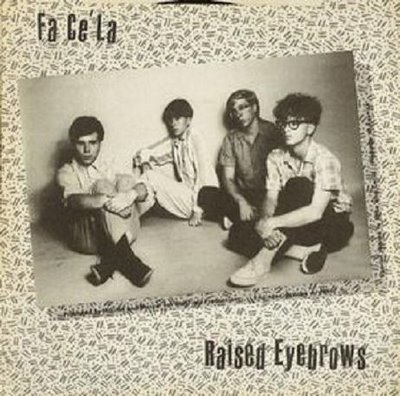 the record. I had two older brothers who were avid record collectors and they would go out and buy stuff. They would read about bands in underground newspapers and stuff, so they weren’t that obscure at first.
the record. I had two older brothers who were avid record collectors and they would go out and buy stuff. They would read about bands in underground newspapers and stuff, so they weren’t that obscure at first.
PHAWKER: How old were you in ‘67?
GLENN MERCER: Thirteen.
PHAWKER: What about The Stooges, did you encounter them roughly the same time as well?
GLENN MERCER: Yeah, I think their first record was ‘69.
PHAWKER: But in the 60’s, did you encounter them in real time?
GLENN MERCER: Oh, well I was into rock and roll even before then. The Beatles and British Invasion music. I didn’t own a guitar at that point, but that kind of inspired me to play. Then going back from The Beatles to Buddy Holly and that era was another influence. I listened to a large amount of stuff.
PHAWKER: Why was there such a long gap between the first album and The Good Earth, which is, by the way, one of my all time favorite albums from the 80’s.
GLENN MERCER: Well, we basically broke up and reformed. Got involved in a lot of offshoot bands. We just kind of laid low for a little while.
PHAWKER: You had kind of a disillusioning experience with Stiff, who put out the first record?
GLENN MERCER: Well, it was alot of different things. I think one big obstacle was that [original drummer] Anton [Fier] preferred to play quite often, really. More than we’d like to. Back then, you couldn’t do kind of a national low budget tour. College radio really wasn’t that strong at that point. It wasn’t until R.E.M. and the 80’s when you could do a low budget tour and go across the country. Back around the time of Crazy Rhythms, the big cities like Boston, Chicago, L.A., we didn’t have much tour support, so we really couldn’t do that. We didn’t really play that often. Anton got frustrated and joined a side band. That was another element, as well as the fact that we were evolving as songwriters and Stiff wasn’t really too happy with the demos we made then. It was really a combination of things. Anton quitting was really the breakup though.
PHAWKER: This new direction that you were heading, was that more akin to the vibe of The Good Earth?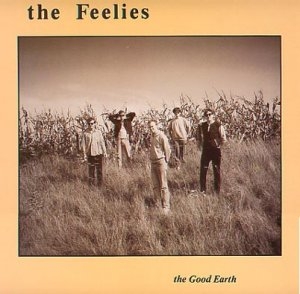
GLENN MERCER: Actually, it was more like what we did on The Willies.
PHAWKER: For the benefit of people who may not know, what are you referring to? How would you categorize that?
GLENN MERCER: It was my band that was a little more low key, more like instrumental passages. The closest I could come to describing it is something less commercial sounding with more drumming and more percussion.
PHAWKER: There seems to be a distinctly different vibe to the band between the first and second record. It feels less angular and herky-jerky, if you will. I’m guessing the new rhythm section had an impact on that?
GLENN MERCER: Yes, that was definitely a factor. It was sort of an evolution, kind of not wanting to stay in one place too long. A lot of it had to do with environment, and the time they were made. The angular sound you mentioned was popular at the time. Bands like R.E.M. and the whole college scene sort of had an effect on The Good Earth. We could do the cross country thing, and we were able to cross paths with bands like the Minutemen, Rain Parade, Green on Red. Just a whole different sort of atmosphere.
PHAWKER: Loved all those bands. I was sort of coming of age around then.
GLENN MERCER: Well we were all going for a particular vibe, I guess you could call it.
PHAWKER: Kind of rootsier, a little more psychedelic, a little closer to classic rock than maybe Crazy Rhythms?
GLENN MERCER: I look at it a little more like the first record IS maybe a little more New York/east coast influenced, and The Good Earth more Midwest/west coast influenced. A lot of the bands we were listening to like Meat Puppets and the Rain Parade were very different from the New York/late 70’s. A lot of it is what you’re exposed to and the time it’s made, I think.
PHAWKER: The cover of The Good Earth, you’re standing in front of a corn field. Where was that picture taken?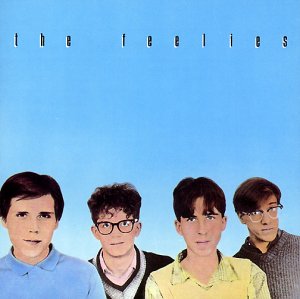
GLENN MERCER: I’m not sure what it is, but that was taken on that ‘84 tour.
PHAWKER: So you did a lengthy tour of the U.S in ‘84, and this was two years before The Good Earth came out. What prompted you to do this tour then? Was that because there was actually this circuit for this low budget touring at that point?
GLENN MERCER: Yeah, that was part of it. I guess give the band a little bit of playing experience as well. There were a lot more college towns that had venues these bands could play in.
PHAWKER: So Peter Buck co-produced The Good Earth, and I’m curious what his input was as producer.
GLENN MERCER: Well if you have the re-issue and the insert, he’s quoted in there as saying that he didn’t really have much to do other than encourage us. He’s the first to say he doesn’t like to impose a sound on a band. Alot of people say he had a big impact on the sound, but it was there to begin with. But that’s his style, that’s what we were looking for. We mostly needed someone while the tracks were being recorded in the control room, just to keep a overall objective here.
PHAWKER: Do you remember the actual recording sessions? How long did the session actually last?
GLENN MERCER: I think also in the booklet it says, [drummer] Stanley [Demeski] recalled…I’m not sure, I remembered it being longer, but I don’t know. It was a long time ago.
PHAWKER: I was curious if you guys ever resented how R.E.M. took your sound and became really big with it.
GLENN MERCER: I don’t know, I don’t see it that way.
PHAWKER: Have you never felt that way, or are you just being more gracious now?
GLENN MERCER: We sort of took it as far as we felt comfortable taking it. That was never a feeling, at least to me.
PHAWKER: Do you think the guys from R.E.M. were maybe a little more ambitious than you guys about making it big?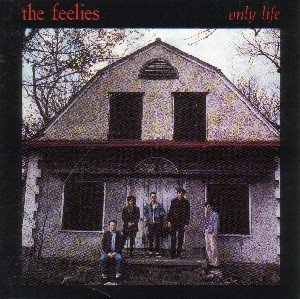
GLENN MERCER: Well I think even in their sound. If you listen to the early records versus the later, they made a lot of concessions. They made some changes, raised the vocals up.
PHAWKER: Now you were one of the first bands to do that, to mix the vocals so low. Where did that come from, were you just shy about your vocals or free up some space for the guitars?
GLENN MERCER: I think just to set a mood or an atmosphere. It just seemed to fit the overall atmosphere and texture of the record.
PHAWKER: Then you signed with A&M in 1988 and released two records, and then sometime in the early 90’s you guys split, what prompted the end of the band?
GLENN MERCER: We actually never signed to A&M, we signed to Coyote. We had a pretty good relationship with them around the time of Only Life, but then they got bought out by Polygram and everything changed. Also, there was alot of pressure to kind of go to another level, and I guess at that time all the bands who signed to major labels broke up soon afterward. It was a combination of changing times and that whole idea of another level.
PHAWKER: Well there was that whole sense of indie purism back then and it seemed that all those bands that signed to major labels lost their indie audience but never really gained a new major label audience.
GLENN MERCER: Was that audience ever really there though?
PHAWKER: Which one?
GLENN MERCER: That whole idea of alternative rock ever really becoming big.
PHAWKER: You think that was sort of overstated.
GLENN MERCER: I do, yeah. It was supposed to be “alternative”
PHAWKER: So basically, everyone became disillusioned with the biz?
GLENN MERCER: The economics of it too, it just became more extensive to go on the road. Bigger places, and we had as many people in the crew as the 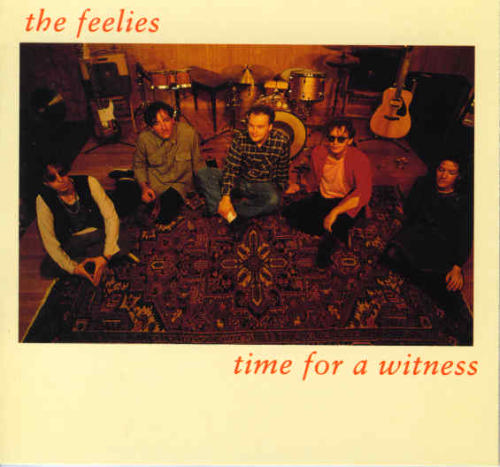 band.
band.
PHAWKER: What were you doing in the early 90’s between the gap when the band split and getting back together a few years ago? Do you live off Feelies royalties?
GLENN MERCER: Well I always stay busy in music. From the late 90’s to the early 2000’s I wasn’t recording but I still played continuously nearby here. I kept writing songs and when I had enough I put out a solo record in 2007. I always stayed busy in music.
PHAWKER: What prompted the band to get back together in 2008?
GLENN MERCER: I guess just a lot of interest in the band. We’ve been getting a lot of offers, our old records are back out. A lot of offers to play shows and Internet activity, licensing offers. A bunch of stuff is coming our way, so it would be hard to pass.
PHAWKER: What are you listening to these days.
GLENN MERCER: Well now I’m working on songs, so I’ve been listening to that and resting my ears. And recording other people, I have a studio in my house.
PHAWKER: Are there any plans to do a new Feelies album?
GLENN MERCER: Yeah, we’re planning it now actually. Working on new songs and talking to record companies. Planning to do it this year.
PHAWKER: Have it out this year, or have it in the can this year?
GLENN MERCER: We’ll hopefully record it. I don’t know if it’ll be out this year though, but we’re shooting for recorded by then.
PHAWKER: Any advice you’d offer to your former 13-year-old self who just discovered the Velvet Underground, anything you know now what you wish you’d known then?
GLENN MERCER: I don’t regret anything so I don’t know that I’d like to change anything.
